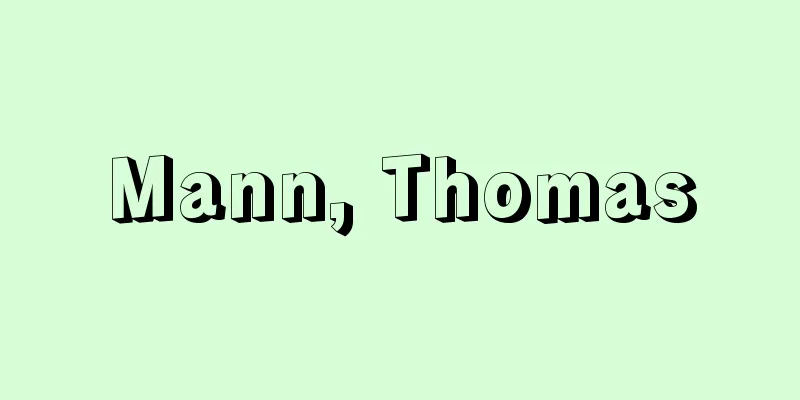Born: June 6, 1875 in Lübeck
German novelist and critic. Brother of H. Mann. Born into a wealthy grain merchant's family, his fortunes declined after his father's death in 1891. In 1893 he moved to Munich, where he worked for an insurance company while also attending the University of Munich to study art history and literary history. He went into exile in 1933, and fled to the United States in 1938. After World War II, he settled in Switzerland. Influenced by Schopenhauer, Nietzsche, and Wagner, his refined writing style, mythological orientation, and use of parody make him one of the most important writers of the 20th century. The conflict between citizenship and artistry, and between life and spirit, which appeared in his first novel, Die Buddenbrooks (1901), was explored in different forms in short stories such as Tonio Kröger (03) and Der Tod in Venedig (12), and remained a lifelong theme for him. Works such as Der Zauberberg (24) and Doktor Faustus (47) can also be considered works of cultural and historical analysis. His other works include the four-part series Joseph und seine Brüder (1933-1943), Lotte in Weimar (1939), The Chosen One (1951), The Confessions of Felix Krull (1954), and the political commentary Reflections of a Nonpolitical Man (1918). He was awarded the Nobel Prize in Literature in 1929. Man
Mann, Heinrich Born: March 27, 1871 in Lübeck
[Died] March 12, 1950, Santa Monica, California German novelist and critic. Older brother of Thomas Mann. Born into a wealthy grain merchant's family, he worked for a publishing company before living in Italy and France, where he was deeply influenced by French thought and culture. He is known for his novels that criticize the times and attack the authoritarian society under the Wilhelmine regime. During World War I, he advocated radical democracy, even coming into conflict with his brother Thomas. In 1930, he became head of the literary department of the Prussian Academy. In 1933, he fled to France via Czechoslovakia, where he became involved in anti-fascist activities. He fled to the United States in 1940, and was appointed president of the East German Academy in 1949, but died before returning to the United States. His works include Im Schlaraffenland (1900), Professor Unrat oder das Ende eines Tyrannen (05), The small town (09), the trilogy Das Kaiserreich (14-25), the historical novels The Youth of Henry IV (35) and The Perfection of Henry IV (38), as well as works of critique on civilization and politics such as Geist und Tat (31). Man
Mun, Thomas Born: June 17, 1571. Baptized: London
[died] July 21, 1641. Buried in London. British economic writer. After engaging in trade with Italy and the Levant, he became a director of the East India Company in 1615. In response to criticism that the company's trade was causing the outflow of British coinage, he wrote A Discourse of Trade, from England unto the East-Indies: Answering to Diverse Objections which are usually made against the Same (1621), and further published The Petition and Remonstrance of the Governor and Company of the Merchants of London, trading to the East-Indies (28) in defense of the company. In England's Treasure by Foreign Trade (published 64), written around 1630, he criticized the mercantilist theory based on the theory of individual trade differences and developed a mercantilist economic theory based on the theory of general trade differences. Man
Mann, Delbert Martin, Jr. Born January 30, 1920 in Lawrence, Kansas
[Died] November 11, 2007. Los Angeles, California. American film director and television director. He adapted television's low-budget techniques to film, producing such TV drama adaptations as Marty (1955) and The Bachelor Party (1957), both written by Paddy Chayefsky. Marty was an unexpected hit, winning the Academy Award for Best Picture and Best Director. He directed many feature films and television movies, and produced over 100 dramas for the highly rated NBC series Philco Television Playhouse. He also served as president of the Directors Guild of America from 1969 to 1971. Man
Mann, Horace Born May 4, 1796 in Franklin, Massachusetts
Died: August 2, 1859, Yellow Springs, Ohio. American educator. Known as the "father of American public education," his reform proposals form the basis of modern public education in many ways. Raised in poverty and adversity, he was finally admitted to Brown University, graduating in 1819. Hoping to enter the legal profession as his life's work, he became an attorney in 1823. He served as a member of the Massachusetts State Assembly from 1827 to 1833, a member of the Massachusetts State Senate from 1835 to 1837, and the first superintendent of the Massachusetts Board of Education from 1837 to 1848. During this time, he reformed the public school system, improved the treatment of teachers, and worked hard to establish the first normal school in the United States (1839). He later served as a member of the U.S. House of Representatives (1848-1853) and president of Antioch University (1852-1859), contributing greatly to education reform. Man
Mann, Klaus Born: November 18, 1906 in Munich
[Died] May 22, 1949. Cannes. German novelist. Eldest son of Thomas Mann. He began writing at the age of 18, and worked as a theater critic and journalist in Berlin, before defecting to Amsterdam in 1933. There he published the exile magazine Die Sammlung. In 1936 he traveled to the United States, became a naturalized citizen, and fought on the African front as an American soldier. He actively sought to carve out a path to freedom, but committed suicide in France. He is typical of the generation that despaired at the powerlessness of the mind amid the chaos that followed World War II. His works include the novel Symphonie pathétique (1935) and his autobiography The Turning Point (42). Man
Mann, Thomas (Tom) Born 15 April 1856 at Fallshill, Warwickshire
[Died] March 13, 1941. Grassington, Yorkshire. British labour leader. Commonly known as Tom Mann. Joined the United Machinists' Union in 1881. In 1889 he became the first chairman of the London Dock Workers' Union, and led a dock strike demanding a minimum wage, an eight-hour workday, and labour rights. He worked hard to form the Independent Labour Party, serving as national secretary from 1994 to 1997. In 1996 he founded the International Federation of Shipping, Dock and River Workers' Unions, becoming its first chairman. In 1916 he joined the British Socialist Party, and in 1920 helped found the Communist Party of Great Britain. Man
MAN AG A German engine and machinery company. Founded in 1986 through the merger of MAN Maschinenfabrik Augsburg-Nuremberg (a holding company) and Guterhofnungshütte. The company mainly produces trucks, buses, printing machines, and steel, but also handles plant construction, diesel engines, turbines, boilers, and civil engineering machinery. Exports account for roughly 60% of the total, almost half of which are to Europe. Annual sales are 21,354 million marks, total assets are 14,022 million marks, and the number of employees is 62,564 (1997). Man
Mun, Albert, Comte de Born: 28 February 1841, Lumigny, Seine-et-Marne
[Died] October 6, 1914. Bordeaux. French politician. Christian socialist. During the Franco-Prussian War in 1870, he was taken prisoner in Metz, where he decided to devote himself to Christian social activities. In 1871, he founded the "Catholic Club of Workers" and in 1881 published the magazine "Catholic Association". He sympathized with the Boulanger Affair and opposed anti-clerical policies. In 1897, he was elected a member of the Academie Française. Man
Man A town in the western part of Côte d'Ivoire. It is the capital of the Man department and is located about 280 km southwest of Bouake. It is a trading center for the Dan people, distributing cacao, coffee, timber, and livestock products. Rich iron ore deposits were discovered in the south, and development began in the 1980s with the cooperation of Europe, America, and Japan. It is also famous for its traditional ivory crafts. There is a domestic airport. Population 88,294 (1988). Source: Encyclopaedia Britannica Concise Encyclopedia About Encyclopaedia Britannica Concise Encyclopedia Information |










